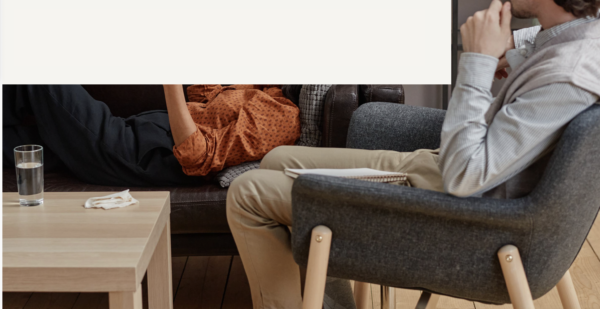This month, we’re exploring the powerful impact of combining coaching psychology with clinical therapy, particularly for those managing anxiety and Obsessive Compulsive Disorder (OCD). To delve deeper into this integrated method, we spoke with Lee Cannon, a Coaching Psychologist and OCD Specialist at Orchestrate Health, whose innovative approach has transformed the lives of many.
In this insightful Q&A, Lee shares his thoughts on the effectiveness of combining evidence-based therapeutic techniques with practical coaching strategies for sustained mental health recovery.
Your approach to mental health combines coaching psychology with evidence-based therapeutic techniques. Why do you believe this integrated method best benefits individuals living with anxiety and OCD?
“Research increasingly highlights the effectiveness of integrating coaching with traditional therapy. Coaching psychology is a proactive, results focused and client centred applied discipline that allows individuals to clearly identify specific issues and set targeted recovery goals across various aspects of their lives where anxiety and OCD manifest.
This method provides real-world practical support, crucial for those who find independent work challenging, particularly when undergoing Exposure and Response Prevention (ERP). Additionally, clients often report progressing more rapidly due to the structured support and increased accountability offered by coaching psychology.”
Exposure and Response Prevention (ERP) is a key part of your work. Can you explain how it works and why it’s such an effective approach for OCD and anxiety?
“Exposure and Response Prevention (ERP), alongside Behavioural Experiments, is an integral aspect of Cognitive Behavioural Therapy (CBT). Traditionally, ERP employs the Habituation Model, systematically exposing clients to stimulus to build tolerance and reduce distress over time. A hierarchical system is used to gradually increase tolerance levels, measured by the Subjective Units of Distress (SUD) scale.
An alternative, the Inhibitory Learning Model, proposes that creating new associations between feared scenarios and actual safety is essential for lasting anxiety reduction. This method helps clients reshape their relationship with distressing thoughts. Both methods boast strong evidence bases, allowing tailored approaches depending on individual client needs, ensuring lasting, effective results.”
You take a highly practical, solution-focused approach to therapy. What are some of the biggest misconceptions people have about overcoming anxiety-related disorders and OCD?
“One significant misconception is the belief that anxiety or OCD cannot be overcome. Many think they must fundamentally change who they are or entirely reset their lives. In reality, meaningful progress often involves learning to change perspectives and adjusting responses.
Another common fear is that facing anxiety will be unbearable or their condition is uniquely severe and insurmountable. People sometimes worry their OCD is an integral part of their identity, crucial for safety or control, preventing them from envisioning life without it.
Understanding and challenging these misconceptions is essential to effective treatment.”
Beyond clinical interventions, you emphasise personal empowerment and resilience. What role does positive psychology play in long-term recovery?
“Positive Psychology, the fastest-growing field in psychology, focuses on enhancing human strengths and fostering resilience, happiness, positive emotions, and purpose – all fundamental to maintaining recovery.
By helping individuals understand how to better self-regulate and reduce unhelpful behaviours, positive psychology provides a framework for cultivating lasting wellbeing. Ultimately, it empowers clients to navigate challenges more effectively, leading to a fulfilling and meaningful life beyond treatment.”
With extensive experience in coaching and cognitive behavioural therapy, what advice would you give to someone hesitant about seeking at-home treatment for anxiety or OCD?
“It’s entirely natural for individuals experiencing anxiety or OCD to feel apprehensive about stepping outside their comfort zones. However, recognising the need for help is a powerful first step.
At-home treatment uniquely addresses issues where they occur, offering personalised, practical solutions unmatched by other approaches. My advice would be to simply give it a try – you have nothing to lose and everything to gain.
Engaging with treatment in your daily environment is often the most effective way to develop lasting skills to manage anxiety and OCD.”





